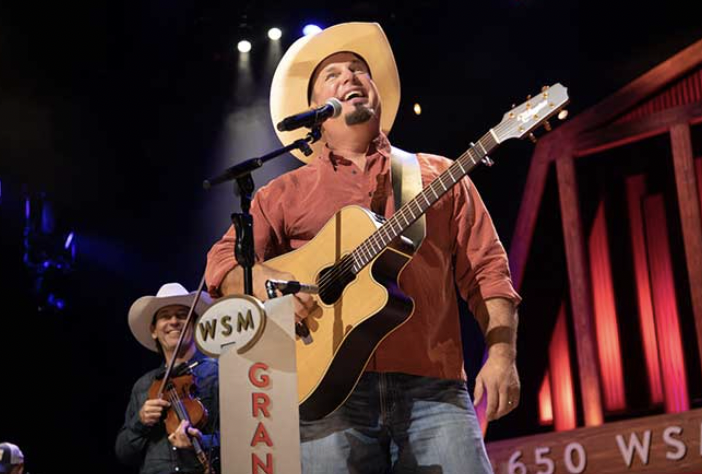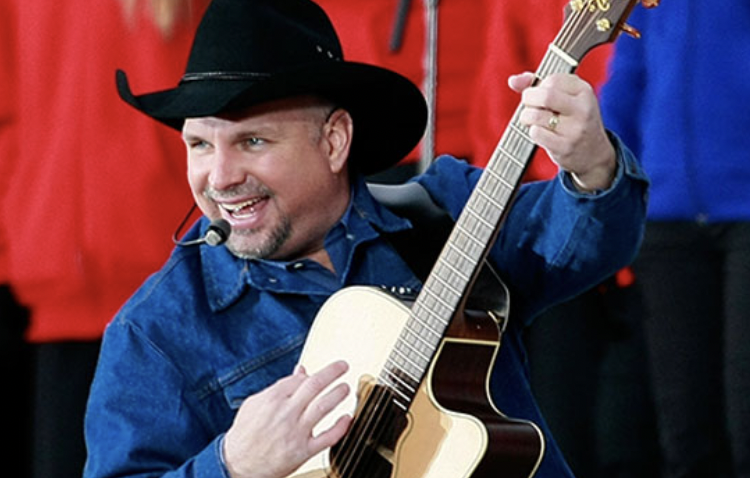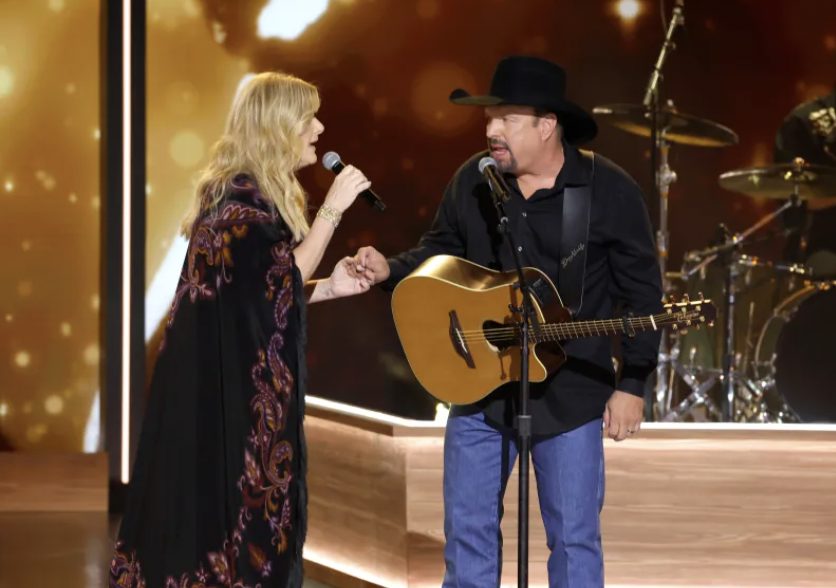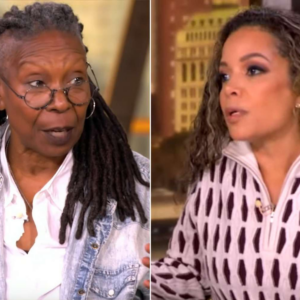Country music legend Garth Brooks is under fire after a controversial moment with his wife, Trisha Yearwood, on stage at the Grand Ole Opry. While the couple performed a tribute duet, fans were left divided, with many criticizing Brooks for his bizarre performance. What exactly happened that night, and why are fans so upset? Read on to uncover the details behind the backlash and its impact on Garth Brooks’ reputation.

Image: Getty Images
Fans Divided Over Garth Brooks’ Performance at the Grand Ole Opry
Garth Brooks is no stranger to the spotlight, but his recent appearance at the Grand Ole Opry has sparked an intense debate among country music fans. Celebrating the iconic venue’s 100th anniversary, Brooks took the stage alongside his wife, Trisha Yearwood, for a special duet honoring George Jones and Tammy Wynette. While many expected a heartfelt tribute, the performance quickly became a hot topic for all the wrong reasons.

Image: Getty Images
While Yearwood’s vocals received praise, Brooks’ rendition of the song left many fans unimpressed. Social media erupted with mixed reactions, with some viewers applauding the performance and others calling it a disaster. Some critics felt Brooks was more focused on impersonating George Jones rather than delivering an authentic and emotional performance.
Twitter users didn’t hold back, with one fan commenting, “Wish Garth would have just sung the song instead of trying to impersonate George.” Another added, “This is a horrible rendition of this song! Garth Brooks can’t sing George Jones!” The backlash only intensified, with some questioning why Brooks was even invited to perform at such a prestigious event.
The Lingering Shadow of Controversy
Adding fuel to the fire, Brooks has been facing significant public scrutiny due to past allegations that resurfaced in October 2024. A former hair and makeup artist accused Brooks of sexual assault and battery, claiming that the incident took place in 2019. The allegations have cast a dark cloud over his career, leading to heated debates among fans and critics alike.

Image: Getty Images
Brooks has adamantly denied the accusations and has even taken legal action, filing a countersuit against his accuser for extortion and defamation. However, the controversy has had a lasting impact on his public image, with some fans struggling to separate the artist from the allegations.
During the Grand Ole Opry performance, many social media users expressed their frustration, with one critic calling Brooks and Yearwood “the biggest frauds in country music.” Another went as far as to say, “Eff Garth Brooks, and eff everyone in the room applauding him.”
What This Means for Garth Brooks’ Future
With ongoing criticism surrounding both his music and personal life, Garth Brooks is facing one of the toughest periods of his career. While he remains one of the best-selling country artists of all time, the backlash from both his recent performance and legal troubles raises questions about his long-term legacy.

Image: Getty Images
Yearwood, on the other hand, continues to receive support from fans, with many praising her professionalism and talent. Some speculate that she may choose to distance herself from the controversy surrounding her husband to protect her own career.
As the dust settles, it remains to be seen how Brooks will navigate this turbulent time. Will he be able to win back the trust of his fans, or will this latest backlash mark a turning point in his career?
Will Garth Brooks Recover from the Controversy?
Garth Brooks’ performance at the Grand Ole Opry has left fans divided, with many questioning both his artistic choices and his character. While some remain loyal supporters, others are finding it harder to separate the music legend from the ongoing controversy.
As Brooks continues to fight legal battles and public scrutiny, one thing is clear—his reputation is on the line. Will he make a comeback, or is this the beginning of the end for one of country music’s biggest stars? Stay tuned for more updates on Garth Brooks and his journey through the storm of criticism.





